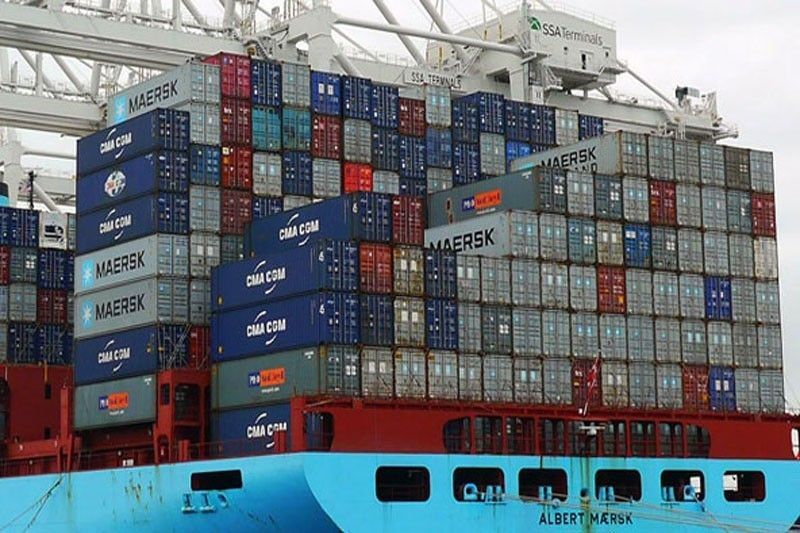Immediate ratification of RCEP urged

MANILA, Philippines — The umbrella organization of the country’s exporters has joined the call for the immediate completion of the ratification process of the Regional Comprehensive Economic Partnership (RCEP) agreement, saying participation in the mega trade deal will help accelerate recovery from the pandemic.
In its position letter to the Senate, the Philippine Exporters Confederation Inc. (Philexport) said the benefits of joining RCEP outweigh the disadvantages, even as it called for safety nets to cushion the adverse effects on some sectors.
Philexport president Sergio Ortiz-Luis Jr. said nearly 1,000 of the group’s more than 2,000 active members ship products to RCEP countries.
“The opening and expansion of market access to the member economies will create positive ripple effects that can result to employment and livelihood, much needed especially now as we try to recover from and thrive again in this pandemic,” he said.
Earlier this week, Trade Secretary Ramon Lopez urged the Senate anew to immediately act on the concurrence of the RCEP, saying delayed participation may affect the country’s ability to attract investments compared to its neighbors in the Association of Southeast Asian Nations (ASEAN).
The Senate will have to give its approval for the Philippines to take part in the RCEP, which is set to take effect on Jan. 1, 2022 for countries that have ratified the deal.
Signed by ASEAN countries Philippines, Brunei Darussalam, Cambodia, Indonesia, Laos, Malaysia, Myanmar, Singapore, Thailand and Vietnam, and their trade partners Australia, China, Japan, South Korea and New Zealand in November last year, the deal creates the world’s largest free trade area.
Ortiz-Luis said RCEP has provisions that could help strengthen the country’s interests.
For one, the trade facilitation chapter provides more definitive and predictable commitments from the signatories, while allowing changes when it comes to openness and clearance of goods, he said.
He said it would also be easier for exporters to comply with the preferential tariff treatment with the consolidation of the rules of origin in ASEAN.
The economic impacts of services sector liberalization and trade facilitation improvement in RCEP are much more significant than the tariff reduction offered in other free trade agreements (FTA), he said.
There are also provisions in the RCEP, particularly on e-commerce, government procurement, and competition not present in other FTAs.
Ortiz-Luis said the Department of Trade and Industry has identified potential sector “winners” from the country’s participation in the deal.
Philippine products like preserved pineapples, pineapple juice, coconut juice, diesel oil, self-adhesive paper, and printed paper can benefit from better tariff rates in China.
Meanwhile, products like fish fillet, pineapple, coffee, canned salmon, chocolate, mixture of preserved fruits, prepared/preserved oyster and mussels, leather gloves, and footwear can enjoy good market access to Japan.
Export opportunities are also expected to open in South Korea for Philippine products including dried/salted tilapia, cheddar cheese, fresh papaya, fresh durian, soya bean oil, canned tuna, and garments and bicycles.
For sectors that may be disadvantaged or considered less competitive, Ortiz-Luis said safety nets should be put in place.
“We urge the Senate to consider enacting separate bespoke legislation on certain ‘safety nets’ to somehow cushion the negative impact of the trade agreement on such sectors,” he said.
Ortiz-Luis also called on the government to help address issues affecting exporters, such as availability of raw materials, climate change, high cost of logistics, particularly shipping, expensive and unstable power supply, as well as internet connectivity.
“These have served as major constraints to maximizing RCEP benefits and in general, from growing MSMEs (micro, small and medium enterprises) and exports. If these issues are not addressed, then there may be basis for the fear of certain sectors on the ‘uneven playing field’ where we may experience trade deficits with our RCEP member economies,” he said.
A study released by the United Nations Conference on Trade and Development (UNCTAD) said the Philippines is among the countries that can see lower exports due to RCEP tariff concessions as trade is diverted to the advantage of other members.
Despite this, the UNCTAD said countries like the Philippines are better off joining the RCEP as the deal could create additional trade that may offset the losses.
It also said the country could benefit in terms of foreign direct investments, technology sharing, and structural transformations.
UNCTAD said trade within the RCEP is expected to rise nearly $42 billion when the deal enters into force.
- Latest























